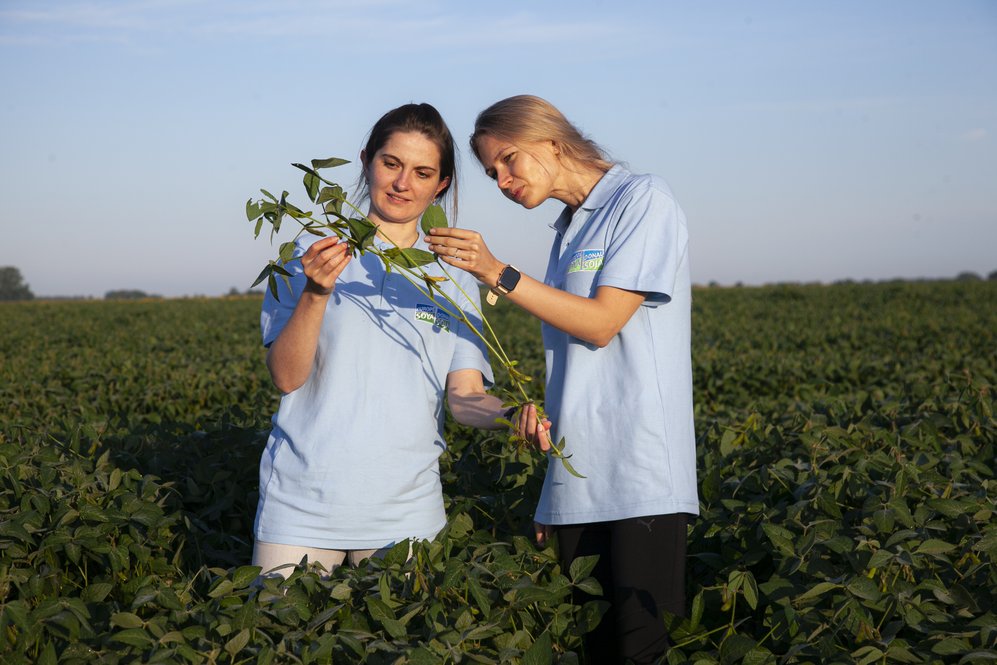Soybean area development within the EU 27 was up almost 10% in 2022, compared to 2021, at 1.07 million hectares. On the other hand, output was down (11.9%, compared to 2021) at 2.35 million tonnes, due to drought and heat waves which EU countries experienced. In the wider continental European picture, however, both areas planted with soy and soy-output was strong: up 9.7% at 4.74 million hectares (an all-time high of soybean development areas), with output up 3.9% in 2022 at 10 million tonnes. Therefore, non-EU countries are easily compensating for the lower yields of the EU ones.
Protein Partnerships – boosting the potential of European soy production.
To support the first step towards physically segregated supply chains, Donau Soja established the Protein Partnership Programme, aimed to boost sustainable non-GM soy production in Europe, for Europe. Protein partners invest in knowledge-transfer activities and certification of farmers and primary collectors in Bosnia and Herzegovina, Moldova, Serbia and Ukraine. In 2022, additionally 600,000 tonnes of Donau Soja certified soybeans were produced in these countries through the Protein Partnership Programme.
With a million tonnes European soybeans certified by Donau Soja as Non-GM, deforestation- and conversion-free, it is clear that the Protein Partnerships is having an impact. This will be having an important effect on CO2 emissions, given that Donau Soja-certified soybeans have been shown to have 90% lower CO2 emissions than those from Brazil (with a deforestation background).
Soybeans are the largest global source of plant-based protein, and a vital element in food production. The EU imports an equivalent of 35-40 million tonnes of soybeans annually, sourcing significant amounts from areas with sensitive ecosystems under threat from deforestation, such as the Amazon rainforest and Cerrado savanna. In the EU only 8% of soymeal is produced domestically, and this rises to 22% in Europe, showing how non-EU European countries play an important role in European soy supply. Donau Soja supports the increased cultivation of sustainable Non-GMO soy in, and for Europe. And there is huge potential to close the yield gap (defined as the difference between actual farm yield and the yield potential with good management) and grow soy in non-EU countries including Ukraine, Serbia, Bosnia & Herzegovina and Moldova, which is where the Protein Partnerships focusses.
“The biggest potential in both production and sustainability increase definitely is foreseen in Ukraine. Closing the yield gap is one of the goals of our knowledge transfer activities. We estimate that additionally 1.3 million tonnes of soy could be harvested only in Ukraine, if best sustainable farming practices are applied.” emphasises Volodymyr Pugachov, Deputy Executive Director of Donau Soja in Ukraine (located in Kyiv).
For more information on 2022 soy output and the Protein Partnerships see: https://www.donausoja.org/wp-content/uploads/2022/12/13.12.2022_Webinar-European-Soya-in-2022_Fromwald_editML.pdf
